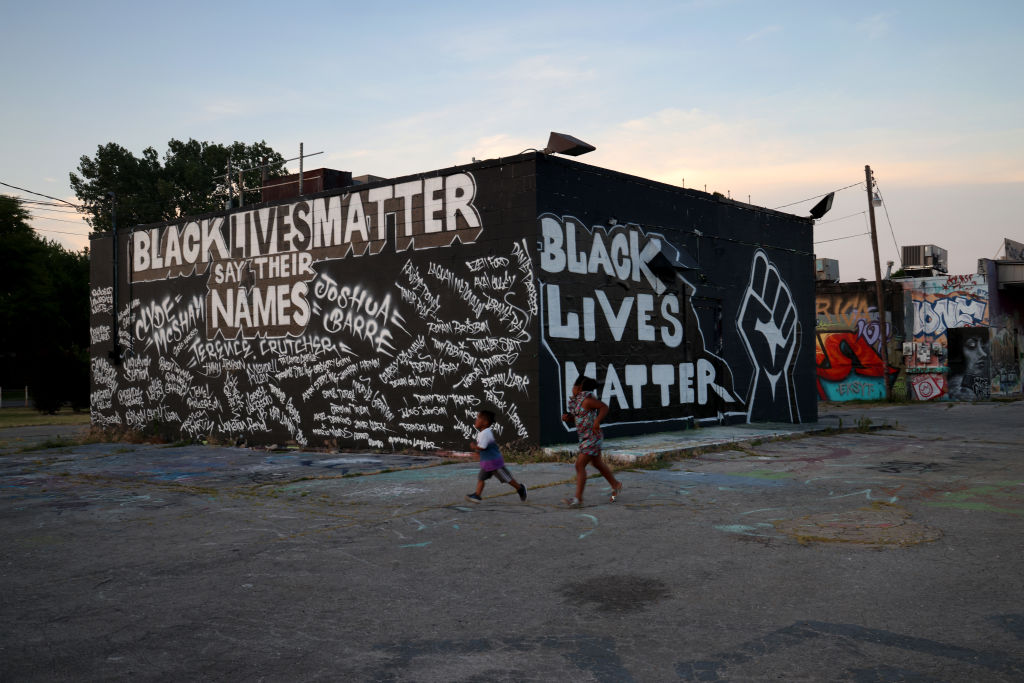Activists set up Tulsa Massacre gravestones in protest of BLM mural removal
Tiffany Crutcher believes that the same culture that burned down Black Wall Street is the same culture responsible for the order to remove the mural
A mural painted on a street in Tulsa’s Greenwood District in June was set to be removed because it did not have approval from the city.
However, protesters recently installed tombstones bearing the names of Black people killed during the city’s 1921 massacre. The installation caused officials to temporarily suspend the order to remove the mural.
READ MORE: BLM mural on Tulsa’s ‘Black Wall Street’ faces removal
Last week, when the Tulsa City Council ordered that the display be removed, activists blocked the street and refused to move.
One of those activists was Tiffany Crutcher whose twin brother, Terence Crutcher, was fatally shot by police officer Betty Jo Shelby in 2016.
City officials said on Monday that the removal will be rescheduled in order to allow for a process that “properly engaged impacted business and property owners,” according to The Washington Post.
Crutcher was one of the activists involved in installing the tombstones.
She told the Post that she “felt like displaying the names of the victims of police brutality and the names of the victims of the 1921 Tulsa race massacre would help people understand why we say, ‘Black Lives Matter.'”
Historians believe that as many as 300 people were killed in the Black Wall Street massacre which decimated the all-Black neighborhood of homes and businesses.

The incident, which took place on May 31, 1921, resulted in the burning of 40 square blocks and left more than 10,000 African Americans homeless.
In July of this year, Tulsa mayor G.T. Bynum, opened an investigation into the massacre and ordered the search for mass graves connected to the event.
Crutcher said that the dynamics that are demanding the removal of the Black Lives Matter mural in the city are similar to those that resulted in the massacre.
READ MORE: Why Trump’s rally in Tulsa invokes the horror of the ‘Red Summer’ for Blacks
“There was no atonement for the massacre of 1921 and no atonement for people whose lives were lost through police brutality,” she said.
“The same culture that burned down Black Wall Street is the same culture we are seeing today. At times, I feel powerless but we can’t stand by and say nothing. We have to speak up and speak out for what is right and what is justice.”
Have you subscribed to theGrio’s new podcast “Dear Culture”? Download our newest episodes now!
More About:News









